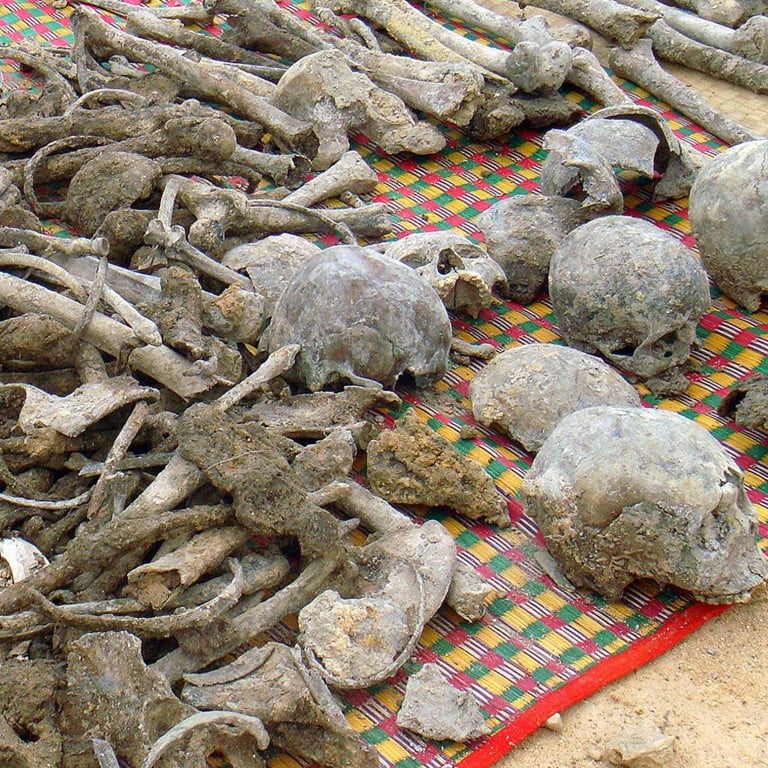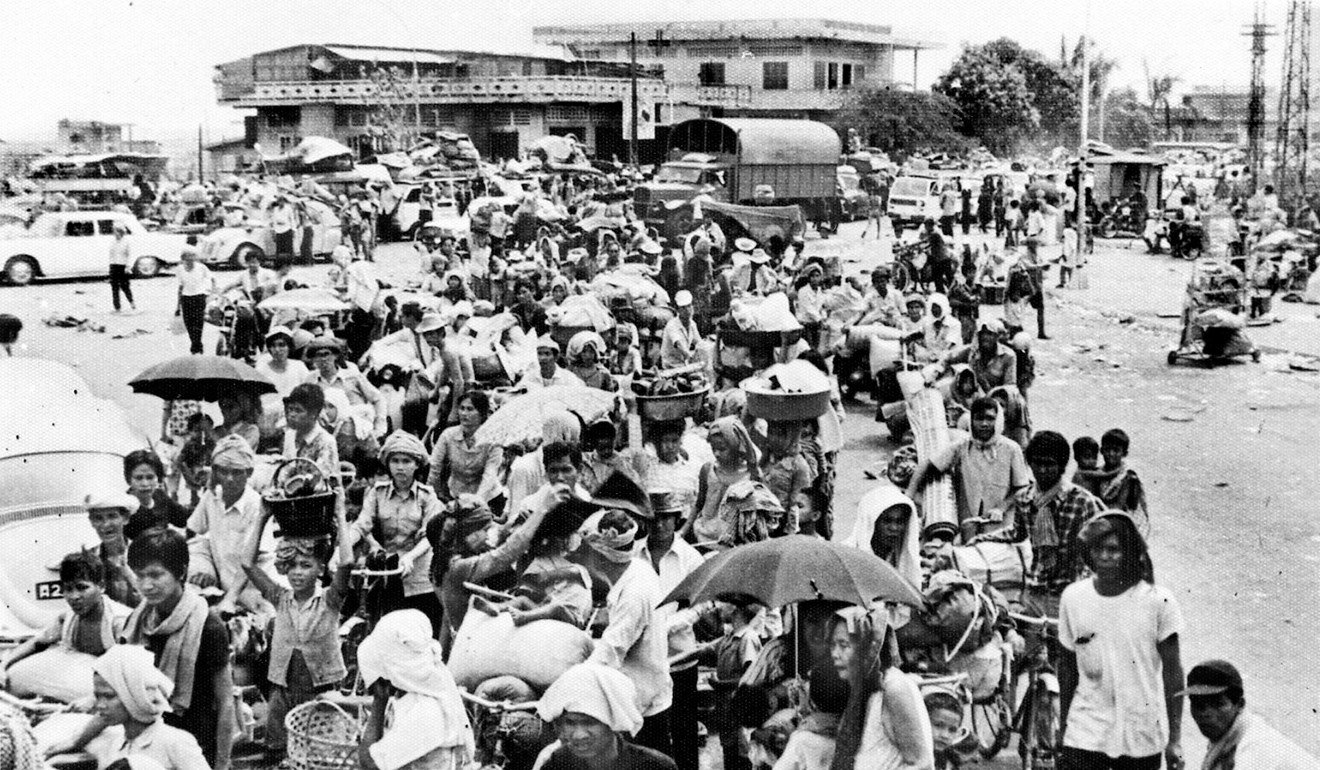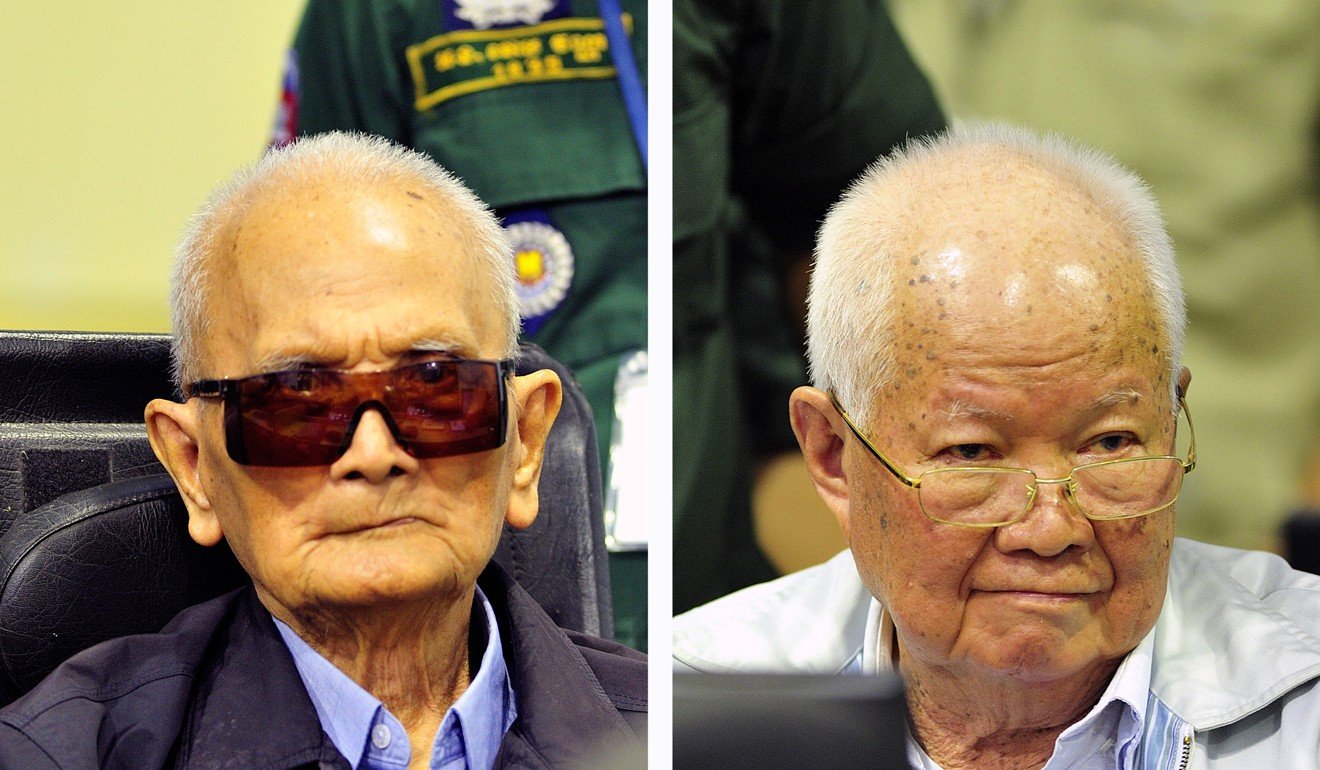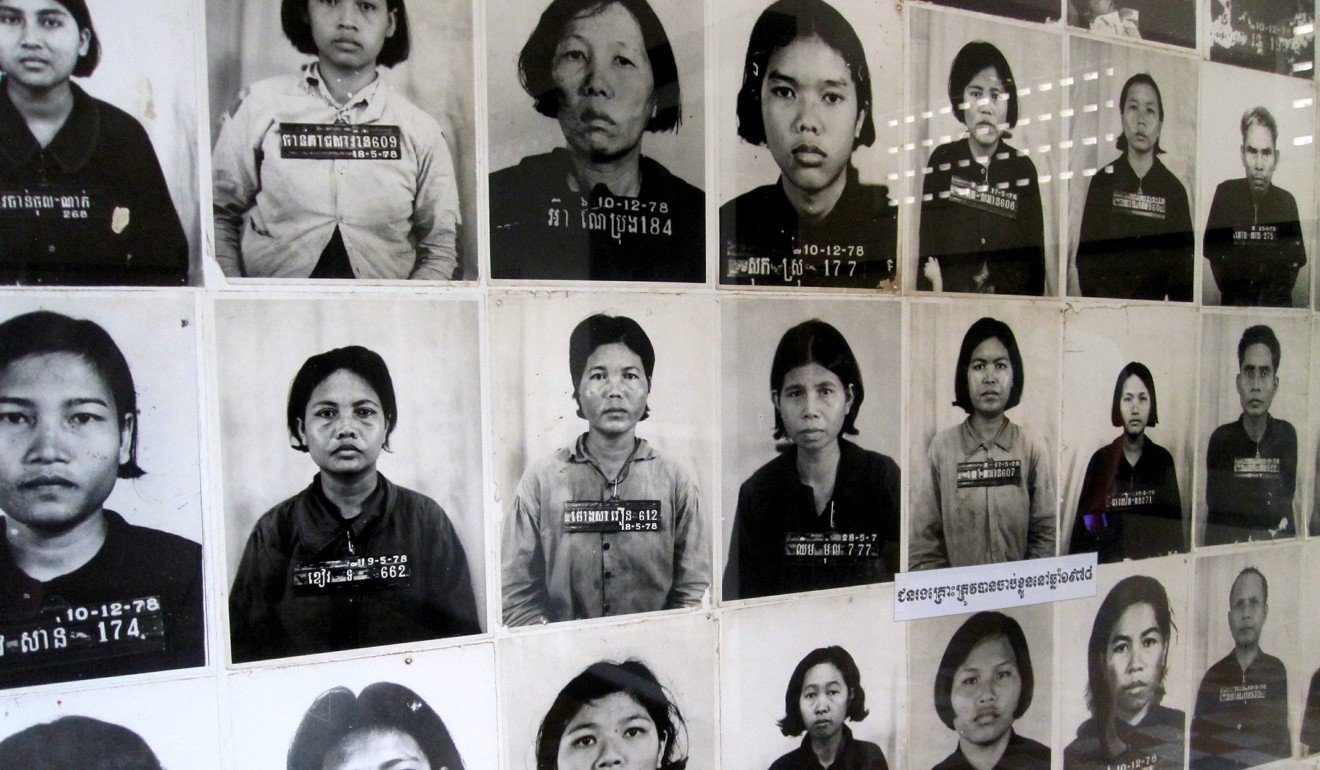
Hun Sen accuses Singapore PM Lee Hsien Loong of ‘supporting genocide’ as war of words over Cambodia’s Khmer Rouge-era escalates
- Vietnam’s actions to remove the Khmer Rouge regime in the late 1970s are still a source of division among Asean member states
- Singapore was among those that saw Hanoi’s actions as an act of foreign aggression; Cambodia and Vietnam to this day say this is ‘not true’
Hun Sen’s comments marked an escalation in an ill-tempered exchange between Southeast Asian nations, stirring animosity and renewed debate about the legacy of war in the region and, in particular, the ousting of the Khmer Rouge regime and subsequent installation of a new government.
Swede who dined with Khmer Rouge’s Pol Pot 40 years ago: I regret it
“General Prem was resolute in not accepting this fait accompli, and worked with Asean partners to oppose the Vietnamese occupation in international forums,” Lee said in comments posted on his Facebook page.“This prevented the military invasion and regime change from being legitimised. It protected the security of other Southeast Asia countries, and decisively shaped the course of the region.”
In a strongly worded Facebook post late on Thursday, Hun Sen said he deeply regretted Lee’s remarks and accused him of supporting the Khmer Rouge genocide.
“His statement reflects Singapore’s position then in support of the genocidal regime and the wish for its return to Cambodia,” Hun Sen said. Singapore “had indeed contributed to the massacre of the Cambodian people”, he said.
Hun Sen was a junior member of the Khmer Rouge but fled to Vietnam when the group split. He returned with the Vietnamese army that intervened in late 1978 to oust Pol Pot’s Khmer Rouge and rose to power in a government set up by Vietnam. Hun Sen said Lee’s comments were an “insult to the sacrifice of the Vietnamese military volunteers who helped to liberate Cambodia”.
The regime was friendly with Beijing and the Vietnamese sought support from the then-Soviet Union to provide military aid if China got involved in the conflict.

Lee’s post attracted more than 20,000 responses. But several Vietnamese users who responded said it ignored sacrifices made by their country to remove the Khmer Rouge. One user, Nguyen Tuan Cuong, suggested Lee visit a Vietnamese village bordering Cambodia to see what the Khmer Rouge had done.
“Can you imagine what would happen to Vietnamese and Cambodia people if we did not ‘invade’ Cambodia?” he asked.
Cambodian minister Banh, who attended the summit, said he had complained about Lee’s comments to his counterpart, Singapore defence minister Ng Eng Hen.
“He [Mr Lee] did not say the truth and his statement does not reflect history. It is not true because he said Vietnamese troops invaded Cambodia,” he said on Monday, as reported by the Khmer Times.
“We wish for him to make corrections,” he added.
Cambodia remembers genocidal horrors of Khmer Rouge
Vietnam’s foreign ministry said it had brought up the matter with its counterparts in Singapore. Hang, the ministry spokesperson, was quoted by Vietnam Express as saying Vietnam’s contribution and sacrifice in helping the Cambodians end Khmer Rouge genocide was true and widely recognised.
The brewing row over an episode in Asean’s recent history has highlighted the differences among member states – despite efforts to avoid confrontation and aim for consensus – on conceptions of sovereignty and maintaining boundaries.
Cambodian prime minister Hun Sen’s fifth child, legislator Hun Many, told the Phnom Penh Post on Tuesday that his father’s Cambodian People’s Party had, with the help of Vietnam, saved more Cambodians from suffering. An estimated 2 million to 3 million people were killed, and last year, the last two surviving leaders of the Khmer Rouge were found guilty by a UN-backed tribunal of genocide. Both were already serving life sentences for crimes against humanity.

But the city state’s efforts to thwart Vietnam were to prevent a puppet regime from being set up, and to ensure that “aggression be seen not to pay”, Lee said.
Khmer Rouge leaders convicted of genocide in landmark court ruling
Retired Singapore diplomat Bilahari Kausikan, during the question-and-answer session of a March 2016 lecture in Singapore, said the Cambodian crisis was a proxy fight between China and the then-Soviet Union and Asean’s role was to prevent the Vietnamese invasion as a “fait accompli”.
As a collection of small countries, Asean could lobby much more effectively in the UN, the outspoken former ambassador said.
“What we could do, we did very well, which was to jam the Vietnamese at every corner when they tried to break out of diplomatic isolation. We even posted diplomats at toilet doors,” he said.
Ong Keng Yong, an ambassador-at-large and executive chairman of the S. Rajaratnam School of International Studies, at the same lecture recounted that he was among the foreign service officers tasked to ensure that even if diplomats had to use the toilet, they would emerge in time to vote against Vietnam.
Asked for his comments on Wednesday, Kausikan would say only: “The philosopher George Santayana once said ‘Those who cannot remember history are condemned to repeat it’. The Cambodian minister should reflect on this.”
Occidental College associate professor Sophal Ear, who survived the Khmer Rouge regime, said Lee’s statement was “factually correct … but of course, Phnom Penh wants to rewrite history and have everyone who opposed the Vietnamese-backed regime of the 1980s apologise, because anyone against them was pro-Khmer Rouge.

“Nonsense. Vietnam had invaded Cambodia. There was a non-communist resistance. Of course, China now rents Cambodia,” he added, referring to how China is now Cambodia’s largest trade and investment partner.
Joshua Kurlantzick, a senior fellow for Southeast Asia at the Council on Foreign Relations, said Vietnam’s invasion of Cambodia remains a sensitive issue.
Technology brings fresh hope in search for Khmer Rouge-era graves
While it ended “one of the worst regimes ever”, the US and regional countries’ backing of Khmer Rouge-allied groups after the invasion was a low point of US diplomacy, he noted.
In addition, Cambodia had always been sensitive to the idea it was somehow subservient to Vietnam, and while many Cambodians did see Vietnamese forces as liberators, there was still anti-Vietnam sentiment whipped up by politicians regularly, he said.
“So, Cambodian leaders may want to simultaneously reassure Vietnam that it is still an important partner, handle the delicate feelings of Cambodians about the invasion and ensure continuing relations with Vietnam.”
Singapore’s Ministry of Foreign Affairs did not reply to a request for comment.
Additional reporting by Reuters


